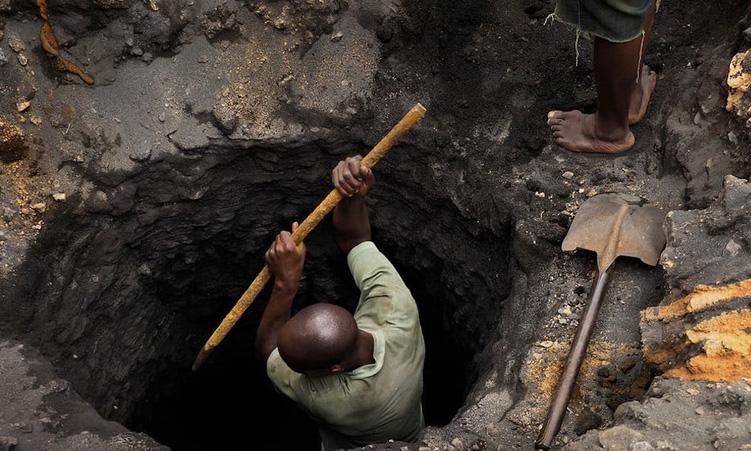ON September 15 2008, under the watchful eye of President Thabo Mbeki a compromise agreement was signed between President Robert Mugabe and the leader of MDC, Robert Tsvangirai.The nuts and bolts of this agreement focused essentially on forming a government of national unity.
Not much came of that in the succeeding months. Earlier this week, South Africa’s President Kgalema Montlanthe announced in the name of the SADC collective that the parties have agreed to form a government of national unity as stipulated in the September 15 framework. But before the dust could settle on Montlanthe’s comments, the MDC announced that nothing was sealed. Zimbabwe is a failed state. The state has lost any meaningful capacity to govern and to provide essential services. Consequently, as is the case with failed states, Zimbabwe has exported many of its ills to neighbouring countries, from refugees, illegal immigrants and potentially infectious diseases. These social problems create pressures on already fragile service delivery mechanisms in these neighbouring countries. So, this week’s extraordinary summit will become another statistic in SADC’s effort to save Zimbabwe. In essence, what all these summits tell us is that how Zimbabweans choose to live and how its leadership chooses to govern the country is something that clearly affects us in the region. Admittedly SADC’s summitry diplomacy, underpinned by these consultations, is an essential foreign-policy tool to engage the parties at the heart of the deadlock. After all, consultations in foreign policy are not everything, but almost. They may reveal to us that in the real world foreign policy issues are complex and practical, with only bad and worse answers. Ordinarily, states work through multilateral institutions to deal with state failures because institutions are considered better substitutes for ineffective action by states. So, when states choose regional or international institutions, the assumption is that there are ethical imperatives to do so. However, Zimbabwe’s deadlock is paradoxically the consequence of a weak regional institution, SADC, which is a reflection of the values and norms of its membership. Its legitimacy ought to be normative and sociological. But, it seems to be lacking on both. SADC is excessively state-centric (mostly tilted toward parties in power), and has been normatively less than convincing on its responsibility to protect the people of Zimbabwe. It has not yet adopted the widely accepted doctrine ‘responsibility to protect’ (r2p). As such, much of its mediation has served, perhaps advertently or inadvertently (depending on how you look at it) to consolidate the man in power, without considering Mugabe as part of the problem. This apparent flaw has consolidated Mugabe’s hand, while taking a less inclusive view of MDC grievances. After all, how would it explain the fact that the MDC has always been emerging from its talks with a sense of injustice? What is actually transpiring now is a result of the initial faux pas SADC took at the beginning of the conflict. Zimbabwe became a failed state with SADC complicity. The elections of the past were only a tipping point. These failures do point out to the limits of SADC is as a multilateral institution. Instead of consolidating an institutional culture that is based on rewards and sanctions, SADC has been a safe heaven for Mugabe’s regime. It took the dim anti-colonial view that Mugabe was a victim of the west, without looking at the actual mismanagement of the country, including the erosion of basic liberties of the people of that country. In fact, for SADC to be with the people of Zimbabwe, actually meant that it was with Mugabe. In his article ‘The Contigent Legitimacy of Multilateralism’, the top international relations scholar Robert Keohane defines epistemic standards as the capacities of an institution to generate and properly use new information that can generate new policy responses, reduce bias in standards and implementation, including reducing the risk for opportunistic behaviour. For SADC to have legitimised flawed elections, including allowing the erosion of basic liberties in Zimbabwe essentially means that it is hesitant to consolidate epistemic standards. And much of the mess in Zimbabwe point exactly to the indecisiveness and the initial blunders of SADC over the past ten years. SADC’s failure on Zimbabwe illustrates that it has not taken a politically transformational view of the region, nor has it been consistent in enforcing its ‘stated norms’, in line with the changing norms and values that have inhabited international relations after the Cold War. The Zimbabwe experience ought to serve as an important transformational learning curve. * Alfredo Tjiurimo Hengari is a PhD fellow in political science at the University of Paris- Panthéon Sorbonne, France.
Stay informed with The Namibian – your source for credible journalism. Get in-depth reporting and opinions for
only N$85 a month. Invest in journalism, invest in democracy –
Subscribe Now!










